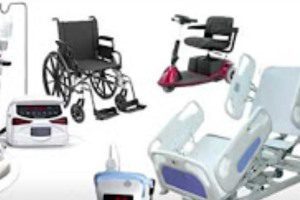
FDA needs to improve its recall policies for faulty medical equipment. The U.S. Food and Drug Administration (FDA) needs to improve its recall policies for faulty medical equipment, claims an article in tomorrow’s issue of The New England Journal of Medicine. Researchers at the Johns Hopkins Medical Institutions in Baltimore conducted the study in response […]

FDA needs to improve its recall policies for faulty medical equipment. The U.S. Food and Drug Administration (FDA) needs to improve its recall policies for faulty medical equipment, claims an article in tomorrow’s issue of The New England Journal of Medicine.
Researchers at the Johns Hopkins Medical Institutions in Baltimore conducted the study in response to a bacterial outbreak there last year. The outbreak, caused by faulty medical equipment used to inspect the lungs, infected 39 patients with potentially deadly bacteria and may have contributed to the deaths of three other patients.
The outbreak could have been prevented if tougher recall policies were in place at the FDA, says lead author Dr. Arjun Srinivasan, an assistant professor of medicine at Johns Hopkins.
“The regulation of devices used for medical procedures should be as rigorous as the regulation of drugs prescribed by doctors,” Srinivasan says.
However, defective medical equipment is treated much differently than defective drugs. When a drug is recalled, manufacturers are required to send out recall letters to all physicians nationwide.
For medical devices, recalls are usually voluntary by the manufacturers, and they generally send single letters to each medical institution where the device is used, Srinivasan says.
The problem with the latter system, Srinivasan says, is that physicians using the devices often don’t even know when a recall has been issued.
At Johns Hopkins, doctors learned they were using faulty bronchoscopes which let physicians view the insides of the lungs to confirm or identify infections only after they saw a jump in infection cases last January.
They reviewed their methods for cleaning bronchoscopes and searched for reports about the device. Then, a month later, they found a recall letter for the bronchoscopes.
“In our investigation, we kind of stumbled upon this recall letter,” Srinivasan says. “Thousands of these bronchoscopes were in service. Who knows how many are still out there.”
More than 1,000 medical devices are recalled every year, says Dr. David Feigal, an FDA official. Most of the recalls are voluntary by the manufacturer, and as many as 20 percent of them involve high-risk problems, he writes in an accompanying editorial in the journal.
Because the FDA receives so many reports of malfunctions — more than 120,000 in 2002 it has created a new program to detect problems earlier. The Medical Device Surveillance Network, once online, will collect data about medical equipment from 250 hospitals and medical centers around the country, Feigal says.
Despite those efforts, a mandatory recall “could have shortened the duration of the outbreak we studied, decreasing the number of patients at risk,” the Johns Hopkins researchers wrote in the study.
“Medical equipment is becoming increasingly complicated,” Srinivasan says. “We know the FDA thinks about this, but we think it needs more attention.”
Part of the difference between regulation of drugs and equipment stems from the size of those industries and the FDA branches charged with monitoring them. The pharmaceutical industry is much larger, as is the FDA’s oversight of it, says Dr. Matthew Weinger, director of the San Diego Center for Patient Safety.
“Within their budget they have done an exceptional job of regulating medical devices, but they’re substantially under-funded,” he says.
At the same time, the two streams of regulation have developed independently.
“The regulation of drugs goes back to before 1920. We didn’t really have medical devices then,” Weinger says. “The device side of things is much newer. I think they’ve taken some things from the drug side of the FDA, but it has mostly developed separately.”
Still, in 1997 the FDA was given greater authority over medical devices. As a result, it has pushed for better, simpler and more user-friendly designs that are less likely to lead to errors in the first place, says Michael Wiklund, a human factors engineer with the American Institutes for Research in Concord, Mass.
“In the long run, you want to promote the design of safe equipment from the beginning. With that, I think the FDA is doing well. There has been a tremendous push by the FDA over the last few years regarding testing of products for all possible scenarios,” he says.
The personal injury attorneys at Parker Waichman LLP offer free, no-obligation case evaluations. For more information, fill out our online contact form or call 1-800-YOURLAWYER (1-800-968-7529).


